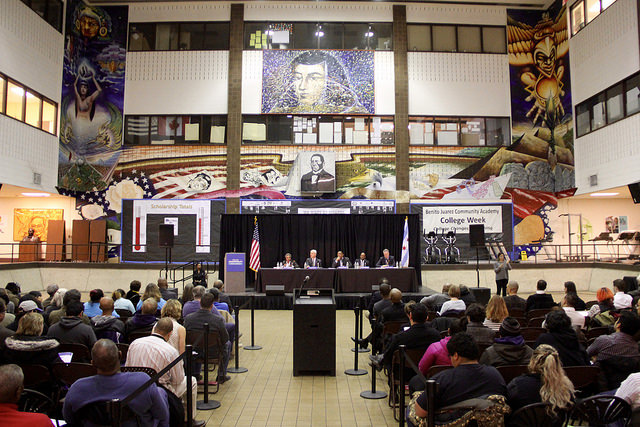

Chicago Police Department Looks to the Future
January 15, 2019Fellow Spotlight: Patrick Holbrook
February 1, 2019In January 2019, a federal judge approved a consent decree on policing in Chicago, a legally-binding agreement between the City of Chicago and the State of Illinois committing to reforms in Chicago’s public safety agencies. The consent decree mandates significant changes to operations at several city agencies, including the Chicago Police Department (CPD) and the Civilian Office of Police Accountability (COPA). The decree follows reports by the City’s Police Accountability Task Force (PATF) and the U.S. Department of Justice (DOJ), which found that the Department had engaged “in a pattern or practice of using force, including deadly force, in violation of the Fourth Amendment of the Constitution.”
As the examples below demonstrate, Civic Consulting Alliance and our pro bono partners continue to support CPD and COPA in preparing for and executing requirements of the consent decree.
CHICAGO POLICE DEPARTMENT
In early 2017, CPD released its Next Steps for Reform, a set of initiatives developed in response to the PATF and DOJ reports. To help CPD execute these reforms, Civic Consulting Alliance and pro bono partners Accenture, A.T. Kearney, and West Monroe Partners helped CPD launch a project management office in the summer of 2017 to sequence, staff, coordinate, and track implementation of several dozen initiatives.
The project management office has since become a permanent feature of CPD’s organizational structure. Now called the Office of Reform Management and led by CPD Director of Reform Management (and Civic Consulting Alliance alumna) Christina Anderson, this Office is charged with tracking adherence to all of the mandates in the consent decree pertaining to CPD.
“CPD has a lot of experience in law enforcement, but very little in project management. We knew we needed Civic Consulting Alliance’s help.”
— Chicago Police Department Superintendent Eddie Johnson
More recently, Civic Consulting Alliance and our pro bono partner have been working with CPD’s Office of Community Policing to address several specific consent decree mandates. For example, under the decree, Districts and Bureaus within CPD are required to work with the Office of Community Policing to create plans for non-enforcement activities such as problem-solving with community members.
To create plans that could be tracked, the Office of Community Policing, with guidance from the Community Policing Advisory Panel report and input from Department leadership, developed standardized templates and a process for writing, reviewing, and tracking these plans. Later this year, CPD Districts and Bureaus will write and implement the plans in close coordination with community advisory committees.
CIVILIAN OFFICE OF POLICE ACCOUNTABILITY
The Civilian Office of Police Accountability (COPA) is charged with investigating allegations of misconduct made against CPD officers. COPA will play a crucial role in the success of the consent decree. With support from Civic Consulting Alliance and pro bono partner Sidley Austin LLP, COPA assessed its current processes compared to the requirements of the consent decrees and developed implementation plans to reach full compliance with every mandate pertaining to the agency. For example:
- Implementing a comprehensive mediation program. COPA will develop a program through which civilians who submit complaints have the opportunity to participate in mediation with the officers involved. The program aims to increase efficiency and transparency, strengthen public trust, and create opportunities for procedural and restorative justice. The program will also free up investigative resources for the pursuit of complaints that are not good candidates for mediation.
- Updating core investigative processes. COPA will implement changes to how it investigates complaints. These changes are designed to lead to faster investigations; greater integrity of witness interviews; increased transparency; and greater efficiency.
- Increasing mandatory staff training. COPA staff will receive comprehensive training when they join the agency, and at least 8 hours of additional in-service training every year. This training will serve as an integral part of COPA’s effort to improve professionalism, efficiency, and thoroughness of misconduct investigations.
Projects follow mandated implementation timelines ranging from 30 days to 2 years from the effective date of the consent decree. COPA has already begun making progress on the 25 project plans, including regular leadership meetings to track compliance.
“COPA is committed to reaching full compliance with all consent decree mandates within the specified timeline. We believe the consent decree will be a powerful vehicle to improve police accountability and police-community relations, and we appreciate Civic Consulting Alliance and Sidley Austin’s support in implementing it.”
— Chief Administrator Sydney Roberts

